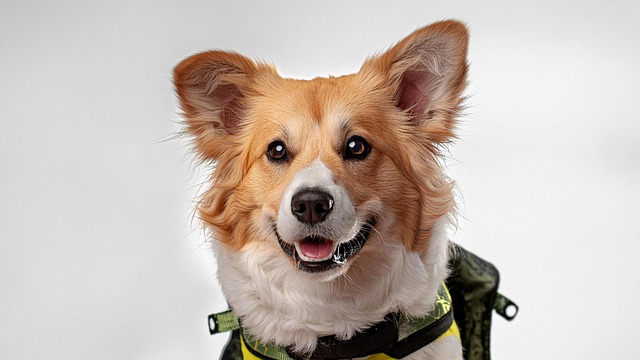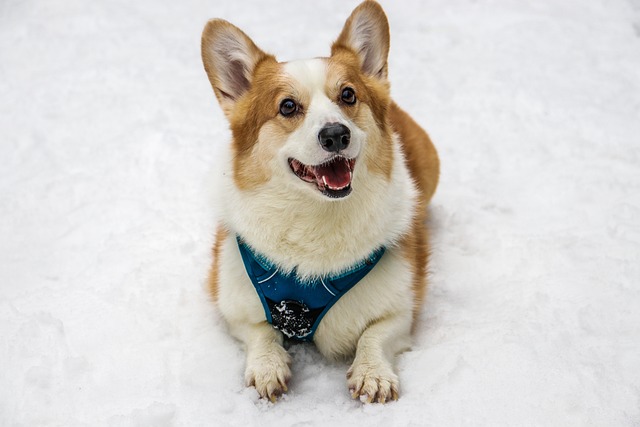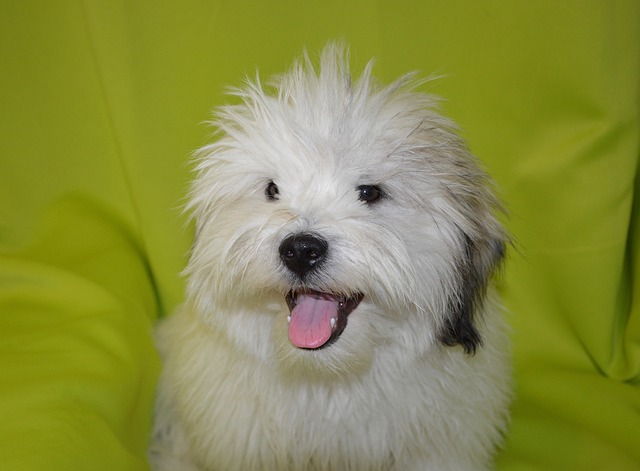
At what age do dogs get food allergies?
When we stroke our fluffy beloved dogs and watch them wagging their tails while enjoying their food, we rarely think that seemingly ordinary food can be an "invisible killer" that harms them.
When a dog that is usually lively and active suddenly curls up in a corner and is no longer interested in food, or vomits or has diarrhea frequently, the owner's heart will tighten. The dog's gastrointestinal tract is the core of digestion and absorption. Once a problem occurs, it not only makes them suffer physical pain, but also makes the owner fall into worry and anxiety. Solving the dog's gastrointestinal problems is like a warm battle against time. We need to use professional knowledge as a weapon and endless care as a backing to help the fur children regain health and vitality.
The dog's gastrointestinal tract is very sensitive, and improper diet is a common cause of problems. Sudden changes in dog food are like a "surprise attack" on the gastrointestinal tract. It is difficult for the intestinal flora to adapt to the new food in a short time, causing symptoms such as indigestion and diarrhea. Ingestion of spoiled food, sharp foreign objects, or excessive intake of greasy and irritating food may become the "culprit" of gastrointestinal damage. Seeing the dog suffer because of his own negligence, the owner's heart is full of self-blame and heartache, and he wishes he could bear this pain for them. For example, the dog took advantage of the owner's inattention and ate the leftovers in the trash can. After a while, he began to vomit and have diarrhea. His weak appearance was heartbreaking. At this time, timely adjustment of diet is the key first step. First, let the dog fast for 12-24 hours to give the gastrointestinal tract a chance to rest, but ensure sufficient drinking water to prevent dehydration. After that, gradually feed light and easily digestible food, such as warm rice porridge and boiled chicken. These foods are like gentle comfort, slowly repairing the injured gastrointestinal tract.
 Infection is also an important factor causing gastrointestinal problems in dogs. The invasion of bacteria, viruses, and parasites will wreak havoc in the gastrointestinal tract and cause inflammation. Once highly contagious viruses such as parvovirus and coronavirus infect dogs, they will cause severe symptoms such as severe vomiting and bloody stools, and their lives are in danger. Intestinal parasites such as roundworms and tapeworms will rob nutrition and damage the intestinal mucosa. When the owner rushed the sick dog to the pet hospital, looking at its helpless eyes on the examination table, the anxiety and worry almost overwhelmed the person. The veterinarian will accurately determine the source of infection through professional means such as fecal examination and blood test, and then prescribe the right medicine. For bacterial infection, antibiotics may be needed for treatment; parasitic infection requires deworming; and viral infection, in addition to symptomatic treatment, requires the owner's careful care and companionship. During the long treatment process, every time you feed the dog medicine and observe its defecation, it is a reflection of the owner's deep love for it.
Infection is also an important factor causing gastrointestinal problems in dogs. The invasion of bacteria, viruses, and parasites will wreak havoc in the gastrointestinal tract and cause inflammation. Once highly contagious viruses such as parvovirus and coronavirus infect dogs, they will cause severe symptoms such as severe vomiting and bloody stools, and their lives are in danger. Intestinal parasites such as roundworms and tapeworms will rob nutrition and damage the intestinal mucosa. When the owner rushed the sick dog to the pet hospital, looking at its helpless eyes on the examination table, the anxiety and worry almost overwhelmed the person. The veterinarian will accurately determine the source of infection through professional means such as fecal examination and blood test, and then prescribe the right medicine. For bacterial infection, antibiotics may be needed for treatment; parasitic infection requires deworming; and viral infection, in addition to symptomatic treatment, requires the owner's careful care and companionship. During the long treatment process, every time you feed the dog medicine and observe its defecation, it is a reflection of the owner's deep love for it.
In addition to diet and infection, the dog's emotional stress may also affect the health of the gastrointestinal tract. Environmental changes, the owner's long absence, and a tense family atmosphere may all cause sensitive dogs to feel anxious. The gastrointestinal tract is called the "second brain", and emotional fluctuations will directly affect its normal function, leading to problems such as loss of appetite, vomiting, and diarrhea. When the owner neglects the emotional needs of the dog because of busy work, and finds that the dog becomes depressed and loses interest in even the favorite toys, and is accompanied by gastrointestinal discomfort, he feels guilty. At this time, it is very important to give the dog enough company and comfort. Spend more time playing with it, stroking its hair, and talking to it softly, so that it feels full of security. At the same time, create a quiet and comfortable living environment for the dog and reduce external stimulation. These seemingly simple actions can dispel the haze in the dog's heart like sunshine and help the gastrointestinal tract return to normal.
In the process of solving the dog's gastrointestinal problems, the reasonable use of probiotics can achieve twice the result with half the effort. Probiotics are like the "guardian" of the gastrointestinal tract, which can regulate the balance of intestinal flora and enhance the digestive function and immunity of the gastrointestinal tract. When the dog has symptoms such as indigestion and diarrhea, feeding it with pet-specific probiotics under the guidance of a veterinarian can effectively relieve the discomfort. Seeing the dog gradually regain its appetite and get better and better with the help of probiotics, the owner gradually let go of his hanging heart. In addition, regular physical examinations for dogs to detect potential gastrointestinal problems in time are also important measures to prevent and solve problems. It's like building a solid line of defense for the dog's health, so that gastrointestinal problems have nowhere to hide.
Solving the dog's gastrointestinal problems is not only a battle to defend health, but also a deep emotional connection between the owner and the dog. In this process, we experienced worry, anxiety, and heartache, and also gained the joy and touch of the dog's recovery. Every careful care and every warm hug are our deep love for the dog. When the dog wagged its tail again, pounced on the food happily, and looked at us with energetic eyes, all the efforts turned into tears of happiness. This makes us understand more clearly that as owners, our responsibility is not only to provide them with material security, but also to use love and professionalism to protect their health and happiness, and accompany them through every spring, summer, autumn and winter.

When we stroke our fluffy beloved dogs and watch them wagging their tails while enjoying their food, we rarely think that seemingly ordinary food can be an "invisible killer" that harms them.

When the fluffy little dog leaves the warm embrace of its mother dog and starts to face the world independently, its ignorant and dependent eyes make every owner feel affectionate.

In the late night pet hospital, under the incandescent light, you watch your dog struggling to move its body, every step accompanied by a slight tremble,

When our furry friends at home scratch frequently, sneeze incessantly, or show symptoms such as diarrhea and ear inflammation, the hearts of every pet owner are gripped with worry.

When you squat down and want to stroke that once fluffy Corgi, your palm gets covered with large amounts of dog hair.

When the furry little golden fur happily falls into your arms, with a faint odor or soil left behind from playing, bathing it becomes a necessary and challenging task.